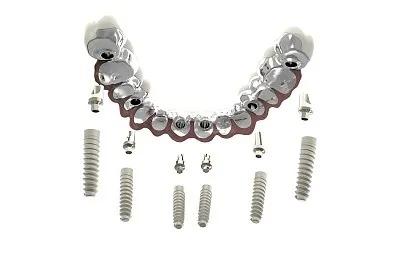Essential Tips and Precautions to Ensure a Successful and Comfortable Dental Filling Experience
Summary: Dental fillings are a common dental procedure aimed at restoring the function and appearance of a tooth affected by decay or damage. However, an anxiety-inducing experience can hinder the effectiveness of this treatment. This article emphasizes essential tips and precautions to make the dental filling process not only successful but also comfortable. From choosing the right dentist to understanding aftercare, each section provides valuable insights that contribute to a positive dental experience. Readers will learn the importance of thorough preparation, effective communication with dental staff, and adhering to post-treatment care to ensure optimal healing and satisfaction.
1. Choosing the Right Dentist for Fillings

Selecting a qualified dentist is a critical first step toward a successful filling procedure. It’s advisable to conduct thorough research on dental practitioners in your area. Look for credentials, reviews, and the specific types of fillings they offer. Ensure that your dentist has experience with the particular filling material you prefer, whether it be composite, amalgam, or another type.
Scheduling a consultation before your appointment can significantly alleviate anxiety. During this visit, you can ask questions regarding the procedure and express any concerns you may have. A good dentist will take the time to explain the process and will make you feel at ease.
Additionally, consider seeking recommendations from friends or family. Personal experiences can guide you towards competent professionals who value patient comfort as much as dental proficiency. A dentist known for their positive chair-side manner can greatly enhance your overall dental experience.
2. Preparing for Your Dental Appointment
Preparation is key to ensuring a smooth dental filling experience. Start by expressing any dental anxiety you may feel to your dentist or the staff. They may provide solutions, such as sedation options or relaxation techniques, to help you manage your nerves effectively.
Furthermore, make a list of medications and medical conditions that may affect your treatment. This information is crucial for your dentist to ensure that everything goes smoothly. If you have any allergies, especially to specific anesthesia or filling materials, it’s essential to communicate this before your procedure.
On the day of your appointment, having a nutritious meal beforehand may help deter lightheadedness that sometimes accompanies dental procedures. Additionally, arrange for a reliable mode of transportation home, especially if you’ll be receiving sedation, ensuring safety and comfort after your visit.
3. Effective Communication During the Procedure
Open communication with your dental team during the filling procedure can foster a more comfortable experience. Don’t hesitate to voice any discomfort or pain you may feel; your dentist can make necessary adjustments to your treatment or administer additional anesthesia.
Moreover, understanding the type of filling and the procedure itself can reduce anxiety. Don’t hesitate to ask your dentist about the various stages of the filling, including what to expect during and after the process. Knowledge can empower you and lower any apprehensions related to dental work.
Finally, discuss the estimated time for the procedure and the expected outcomes. Having realistic expectations can lead to a more satisfactory experience, as you will be better prepared for what lies ahead. Clarity on these points ensures you feel in control throughout the process.
4. Following Post-Treatment Care Instructions
Post-treatment care plays a significant role in ensuring the success of your dental filling. Follow your dentists aftercare instructions meticulously to avoid complications, as they may include dietary restrictions and proper oral hygiene practices.
After getting a filling, it’s common to experience some sensitivity in the treated area. If this sensitivity persists for more than a few days or worsens, contact your dentist for advice. They may need to adjust the filling or check for underlying issues.
Finally, schedule regular dental check-ups to monitor the condition of your fillings and overall dental health. Regular visits allow your dentist to catch potential problems early, ensuring your smile stays healthy and bright for years to come.
Summary:
Dental fillings are vital for maintaining oral health, and the process can be made comfortable and successful through careful planning and effective communication. By selecting the right dentist, preparing adequately, communicating effectively during the procedure, and adhering to post-treatment care, patients can significantly enhance their dental experience. These proactive steps lead to better outcomes and increased patient satisfaction.
This article is compiled by Vickong Dental and the content is for reference only



